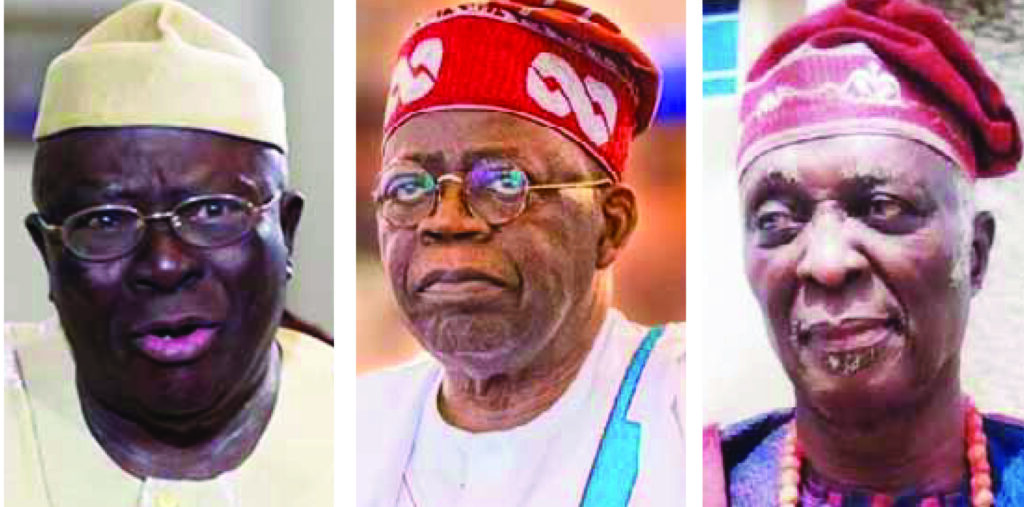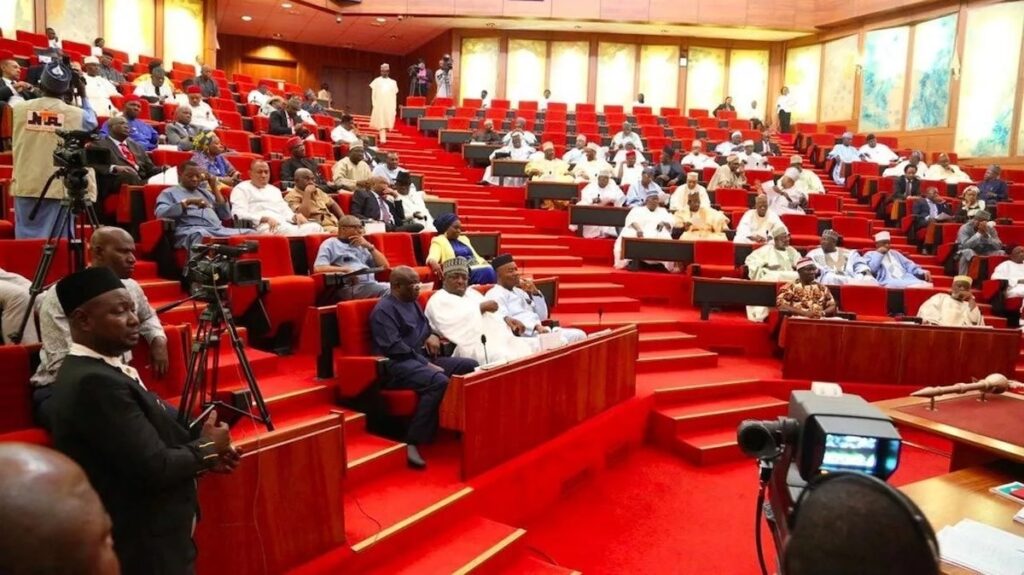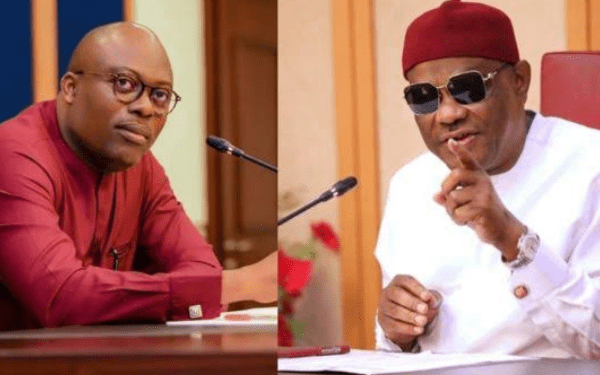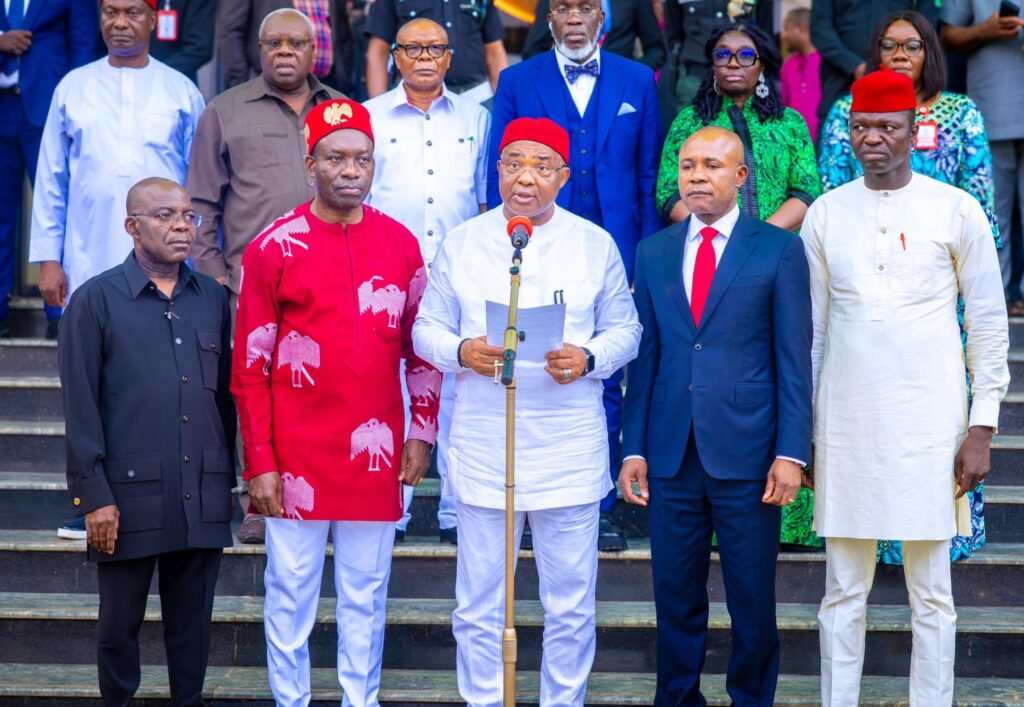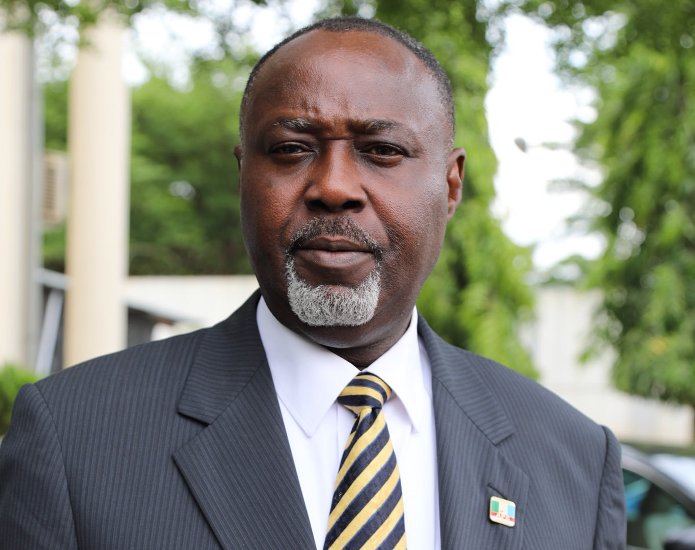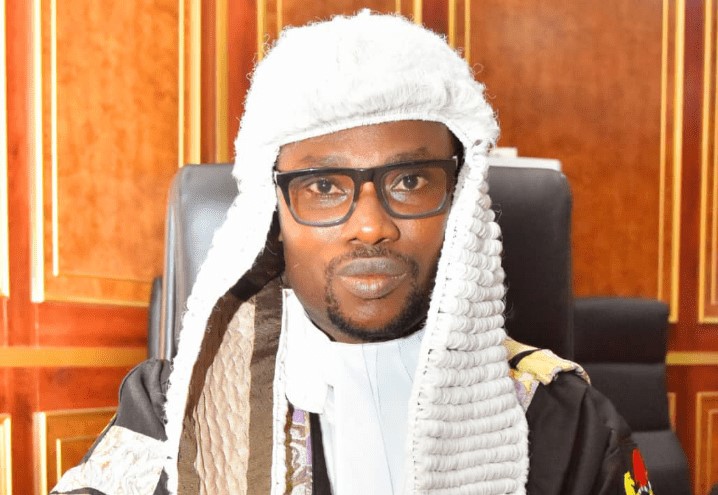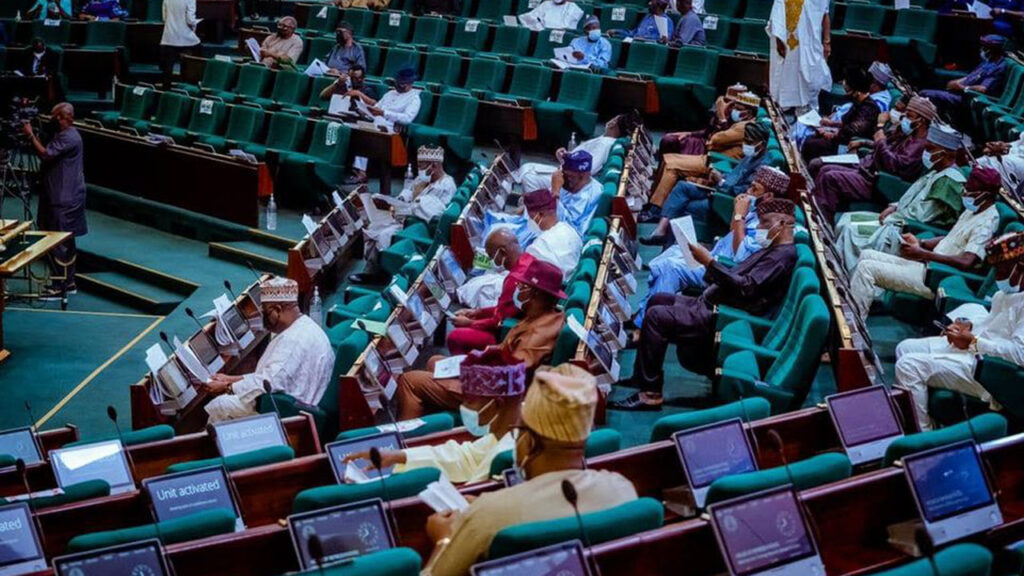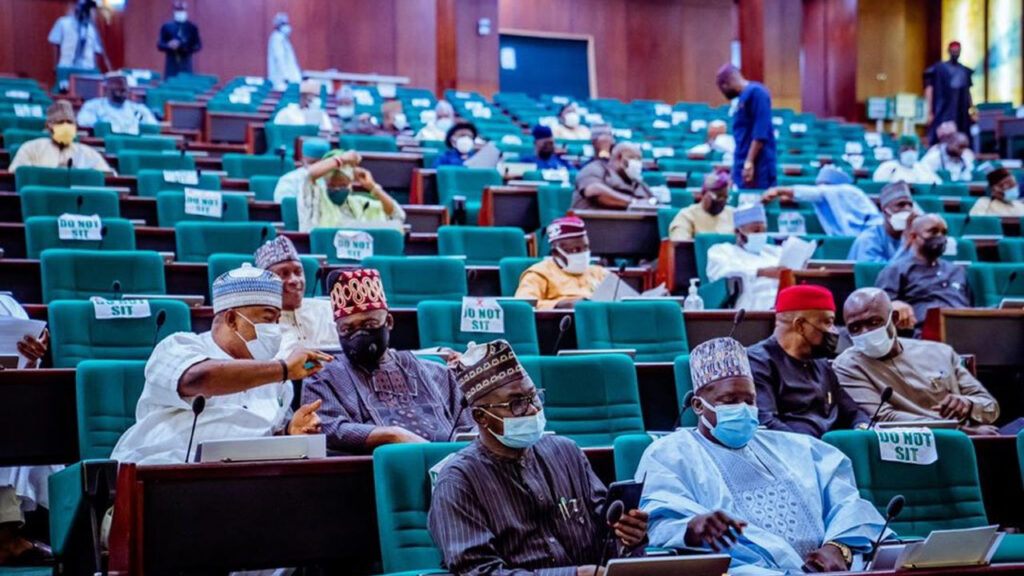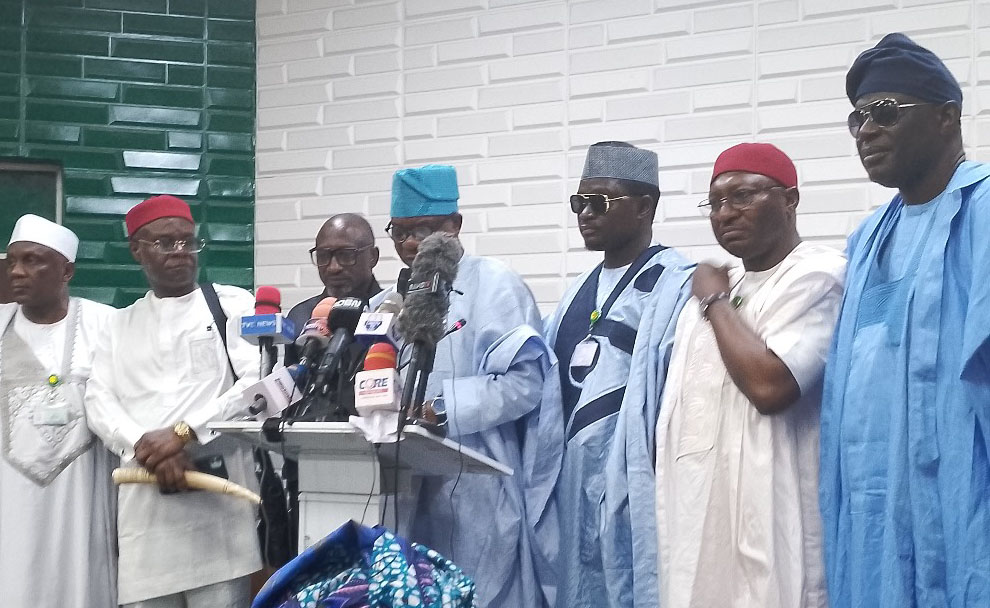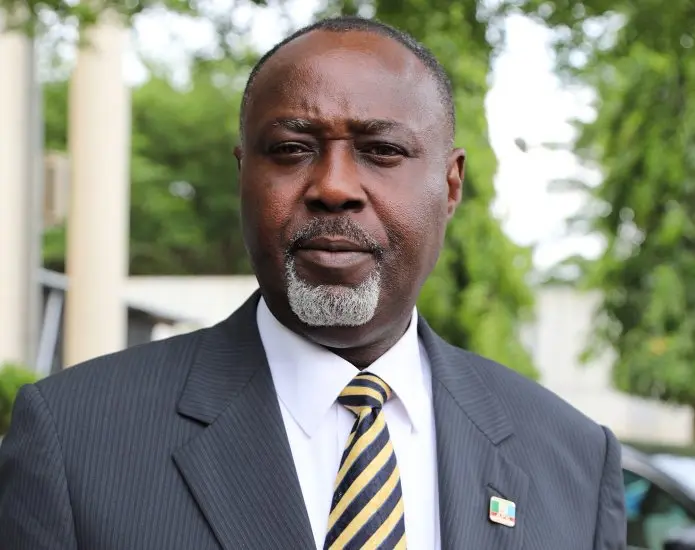
When President Bola Ahmed Tinubu marked his first anniversary last week, the Southwest region found itself unable to pinpoint significant progress in the home region that is popularly known for the progressive agenda, SEYE OLUMIDE reports.
For the critical stakeholders in Yorubaland, their expectations from any president go beyond political appointments or tokenism. It is not about bricks and mortals or about bread and butter, but a political arrangement that will allow them to develop at their own pace.
To achieve this, the issue of restructuring the country to allow for true federalism and regional integration has been on the front burner for over three decades.
It was also on this premise that the apex Yoruba socio-political and cultural organisation, Afenifere, and host of other Southwest groups, supported former President Muhammadu Buhari in 2007 to contest against the late former President Umaru Yar’Adua of the Peoples Democratic Party (PDP). But the erstwhile Military Head of State lost to the former Katsina State governor under the polls supervised by former President Olusegun Obasanjo.
Again in 2015, a faction of Afenifere, led by Pa Ayo Adebanjo, and major Yoruba socio-political organisations pitched their tents with former President Goodluck Jonathan of the PDP because of the 2014 National Conference he organised to restructure Nigeria. Again the aspiration failed as Jonathan was ousted from power by ex-President Buhari.
Although, the ruling All Progressives Congress (APC) as at then led by Buhari, had it in its manifesto, agenda to restructure Nigeria but reneged as soon as it got into power. In fact, the party set up a committee on restructuring led by the former governor of Kaduna State, Nasir el-Rufai, but its recommendations were not implemented by Buhari’s administration.
Interestingly, President Tinubu himself has been an unrepentant advocate of restructuring and true federalism, the position he upheld as governor of Lagos between 1999 and 2007, when he created additional 37 Local Governments Development Areas (LCDAs), which degenerated into serious constitutional crisis between Lagos and the then Federal Government’s controlled PDP.
But a year after Tinubu assumed office, there has not been signs that he would justify reasons why Southwest supported him during the election and still supporting his presidency.
Apart from that, major stakeholders from the zone are also unhappy with the excruciating economic hardships across the country in the last one year.
They posted that the cost of living has never been this tough since the country gained independence in 1960, wondering how Tinubu’s economic policies are making survival difficult for average Nigerians.
For example, in the latest data released by the National Bureau of Statistics (NBS), the country’s inflation has climbed to 33.69 per cent in April 2024, the highest since March 1996. It rose to that figure from 33.2 per cent it was in March, which marked the 16th consecutive month of acceleration in inflation, partly because of renewed weakness in the naira coupled with the removal of fuel subsidies.
Food inflation, which accounts for the bulk of Nigeria’s inflation basket, soared to 40.5 per cent in April, compared to March’s reading of 40 per cent. The annual core inflation rate, which excludes farm produce and energy, jumped to a fresh record high of 26.8 percent in April. On a monthly basis, consumer prices rose by 2.29 per cent in April, easing from a 3.02 per cent surge in the previous month. The unfortunate situation did not exempt the region.
In line with the data released by PricewaterhouseCoopers (PwC), a professional services firm, poverty level in Nigeria was projected to increase to 38.8 per cent in 2024, if not more at present, while unemployment rate across the nation has also increased based on high cost of production.
Since February the security situation in the country has been worrisome such that the Senate held a meeting with the executive to deliberate on the situation. Southwest is no exception, though slightly better and at peace compared to other regions, especially the northern part of the country, but the prevailing economic hardship is raising concerns among Yoruba leaders, calling on the President to move faster in addressing it.
While assessing Tinubu’s one year in office, a former Minister of Power, Dr Olu Agunloye, said, though it has not been inspiring, it however, has nothing to do with the absence of any or some individual in the government.
He said, “Despite the fact that things are not as good as expected, this is not the same as saying that Tinubu and his team are not doing their best to take Nigeria ‘out of the woods,’ as the saying goes. They are running the country aground or in destructive mode.”
He said the country would have faced the same challenge or worse, if it were any other person. “We can pinpoint clear facts that are hard to dispute in the Tinubu’s administration so far. He inherited a damaged economy, unworkable Nigerian Constitution, and a structured bad governance. But because he was part of it all, he could not stage a total break from his inheritance. In fact, he said he would continue with Buhari’s administration, which was bad enough.”
Agunloye also posited that President Tinubu was not elected as a magician to solve all the problems within a year just as he noted that the incumbent administration has moved the country from a direction to ultimate doom and is now facing the channel to greatness.
He said: “Nigerians have not begun to enjoy the dividends of his work or worth. In fact, they are suffering and groaning under the burden of increased tariffs, increased costs of food, rent and transportation, general insecurity, and social insecurity, including those newly created by him.”
To Agunloye, it was sad that some officers in the government still believe that it is business as usual. He said such people still have the mentality that governance is a comfort zone for corruption and they are planning 2027 elections instead of how to get Nigeria to take its place in the comity of nations.
He said Tinubu should face the economy squarely, reconfigure Nigeria’s Constitution, put human face on governance, and play less politics.
But a prominent member of Yoruba Oodua Union (YOU), Sam Agbetuyi, insisted that Nigeria must be restructured else, he doesn’t believe in the system President Tinubu is running and therefore do not see the administration addressing the crisis of poverty, inflation and insecurity.
He blamed Tinubu for removing fuel subsidy by fiat without consultations just as he criticised the incumbent as being part of the subsidy crisis when he led a protest in 2012 to oppose former President Goodluck Jonathan’s decision to remove subsidies on fuel.
Agbetuyi said Nigeria should better return to a regional government and revisit the 1963 Constitution. He also advised the President to be fair to all regions in his political appointments.
“The way and manner Tinubu is appointing some Yoruba people into strategic offices is questionable. If Tinubu were to be from another tribe, we Yoruba would have criticised him to high heavens for nepotism. He cannot be doing what other presidents did and we should now support him. I expect many Yoruba leaders to stand up and tell the President the truth about nepotism that is defining his presidency,” he said.
An elder statesman, DrKunleOlajide, said Nigerians should give Tinubu time to fix what has been damaged over the years. He also disagreed with critics that want Nigerians to believe that Tinubu has failed. He disclosed that Tinubu is building a solid economic foundation that will soon transform Nigeria noting that “this may be difficult to believe but that’s fact and we will soon see it.”
In his remark, President Yoruba Ronu Leadership Forum, Akin Malaolu, said Tinubu was in a great hurry to show his expertise when he declared subsidy gone on petrol pump price and he equally in his most naive moment floated the naira without consultations with economic experts.
According to Malaolu, “His one year in office has been one that sent undergraduate students out of their institutions, he sent many homes into pervasive hunger while kidnappings and killings of Nigerians and mostly rural farmers by both terrorists and Fulani warriors are still rife and largely undefeated.
“The economy of Nigeria, which was running on N460 to dollar days before his inauguration on May 29, 2023 has nosedived to N1500 per dollar in the period of his one year in office. Today, many conglomerates have either cut down production or quit.”
A prolific journalist, Dr Liadi Tella, however, differs in his approach to Agetuyi and Malaolu positions, saying that President Tinubu has approached governance with characteristic boldness and strong character in the last one year and therefore needs to be given support.
He said the challenges facing Nigeria now is synonymous with new development, just as he cited example of how Nigerians hurriedly condemned the former Military Head of State, Ibrahim Babangida, over the International Monetary Fund (IMF) loan and his policies on Structural Adjustment Programme (SAP) without looking at the positive side.
He said the wrongs of many years cannot be corrected within a year. I want the Southwest, in particular, to look at how industries are springing up along Agbara Estate, Lagos-Ibadan Expressway, and in Abeokuta among others. These are signs of goodies that the government is offering.”

